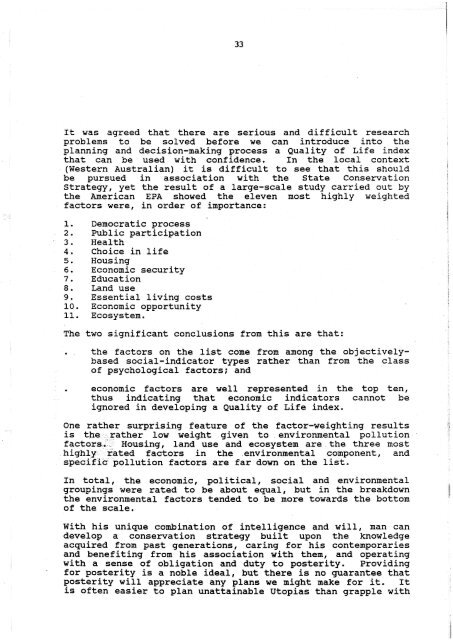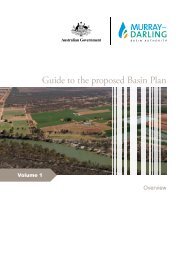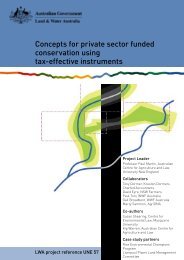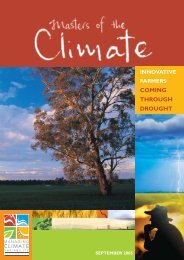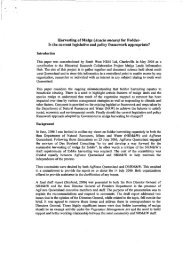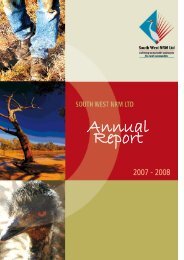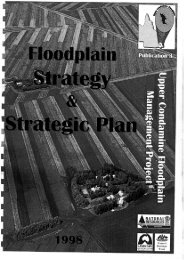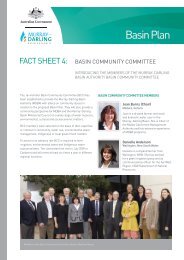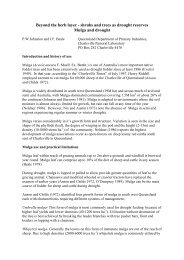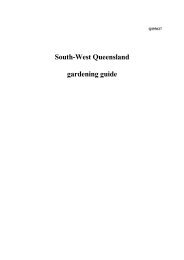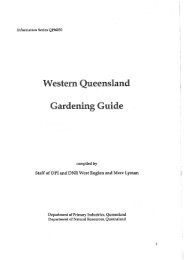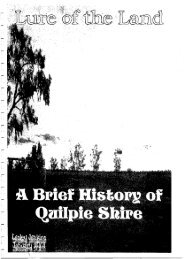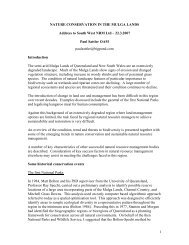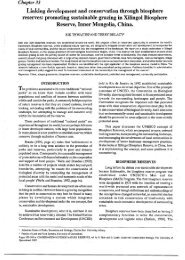soil-conservation-people-religion-and-land.pdf - South West NRM
soil-conservation-people-religion-and-land.pdf - South West NRM
soil-conservation-people-religion-and-land.pdf - South West NRM
Create successful ePaper yourself
Turn your PDF publications into a flip-book with our unique Google optimized e-Paper software.
'<br />
It was agreed that there are serious <strong>and</strong> difficult research<br />
problems to be solved before we can introduce into the<br />
planning <strong>and</strong> decision-making process a Quality of Life index<br />
that can be used with confidence. In the local context<br />
(<strong>West</strong>ern Australian) it is difficult to see that this should<br />
be pursued in association with the State Conservation<br />
Strategy, yet the result of a large-scale study carried out by<br />
the American EPA showed the eleven most highly weighted<br />
factors were, in order of importance:<br />
Democratic process<br />
Public participation<br />
Health<br />
Choice in life<br />
Housing<br />
Economic security<br />
Education<br />
L<strong>and</strong> use<br />
Essential living costs<br />
Economic opportunity<br />
Ecosystem.<br />
The two significant conclusions from this are that:<br />
. the factors on the list come from among the objectivelybased<br />
social-indicator types rather than from the class<br />
of psychological factors; <strong>and</strong><br />
economic factors are well represented in the top ten,<br />
thus indicating that economic indicators cannot be<br />
ignored in developing a Quality of Life index.<br />
One rather surprising feature of the factor-weighting results<br />
is the rather low weight given to environmental pollution<br />
factors. Housing, l<strong>and</strong> use <strong>and</strong> ecosystem are the three most<br />
highly rated factors in the environmental component, <strong>and</strong><br />
specific pollution factors are far down on the list.<br />
In total, the economic, political, social <strong>and</strong> environmental<br />
groupings were rated to be about equal, but in the breakdown<br />
the environmental factors tended to be more towards the bottom<br />
of the scale,<br />
With his unique combination of intelligence <strong>and</strong> will, man can<br />
develop a consenration strategy built upon the knowledge<br />
acquired from past generations, caring for his contemporaries<br />
<strong>and</strong> benefiting from his association with them, <strong>and</strong> operating<br />
with a sense of obligation <strong>and</strong> duty to posterity. Providing<br />
for posterity is a noble ideal, but there is no guarantee that<br />
posterity will appreciate any plans we might make for it. It<br />
is often easier to plan unattainable Utopias than grapple with


